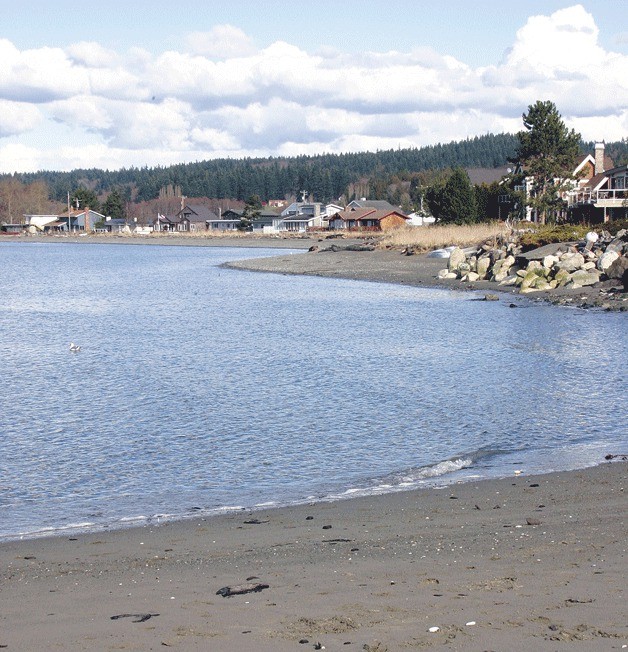Specially trained “cadaver dogs” will be brought in next week to search Maxwelton Beach for other remains after a human skull now believed to be that of a homicide victim was found on the wet sand about three months ago.
Detective Ed Wallace of the Island County Sheriff’s Office said Friday that forensic evidence shows the cranium portion of a skull to be that of a male 35 years or younger.
Two marks on the skull indicate the victim may have been struck with a sharp instrument such as an axe, hatchet or machete, and that death could have occurred as long as a decade ago or more, Wallace said.
He said the skull was found at the waterline on Maxwelton Beach between Dave Mackie Park and Mill Beach Lane to the north.
“It was just sitting there, rolling in the surf,” Wallace said.
The skull was found on Nov. 26 by two visitors from Mercer Island. Wallace said one of the pair kept the skull in a garage at home until Feb. 2, when it was turned over to the Mercer Island Police Department.
He said the skull was taken to the police after the pair read in their local newspaper that possession of human remains is illegal. But Wallace declined to identify the finders further, or to say why they had decided to keep the skull in the first place.
“They’re trying to help us out, and they’re getting blasted by the press,” Wallace said. “Our focus is to find out who the victim is and what happened to him.”
Wallace said Mercer Island police eventually turned over the skull to the King County Medical Examiner’s Office, where it continues to be studied.
He said Dr. Kathy Taylor, a forensic anthropologist, is investigating, and that a piece of the skull has been sent for DNA testing.
Wallace said Taylor herself admits the 10-year range for time of death is a broad estimate, and that she has been unable to determine the race of the victim.
He said that the skull’s condition indicates that it didn’t spend significant time in the water, and that it most likely washed down the beach to the waterline from the previous day’s high tide.
Wallace said it’s still unclear whether the entire body washed up on the beach undetected, or if a body was discarded in the area unnoticed and later picked up by the tide.
He said no current open missing-persons files appear to fit the circumstances.
“We’re looking at a couple that are five to 10 years outside the 10-year window, but we’re not ruling them out,” Wallace said. “We also have a couple of leads from other agencies, and we’re looking into those as well.”
He declined to be specific about prior cases, in deference to family members.
Wallace said it’s believed the cranium has no connection to the 10 detached feet that have washed up on beaches in British Columbia and Puget Sound in the past three and a half years, including a badly decomposed foot found this past August at Greenbank.
Nor is there a connection to a body that washed up at Greenbank on Dec. 14, which was later identified as a 47-year-old Arlington man, he said.
A body also washed ashore at Mutiny Bay near Old Beach Road in November 2009, which was identified as a 97-year-old Everett man last seen a week earlier in the water near the Mukilteo Ferry Terminal.
Wallace said next week’s search with the dogs from Everett has yet to be scheduled, but he acknowledges that the trail may be cold. An earlier search on foot by law enforcement officers came up empty, he said.
“It’s tougher,” he said. “We’re basically looking for bones, which is harder than looking for a decomposed body.”
Wallace urged anyone with information, or anyone who has collected from the beach what they believe to be animal bones, to call him at 360-678-7968.
He also urged those who make future discoveries to report them immediately.
“Keeping human remains is illegal under state law,” Wallace said. “Even disturbing the site where they’re found is illegal.”



